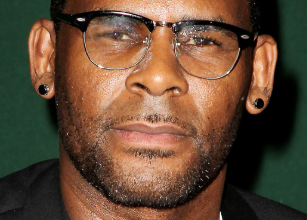‘Sidney’ review: An Oprah Winfrey-produced Apple TV+ documentary does justice to Sidney Poitier’s remarkable life and career


Counting the actor’s widow, Joanna Shimkus Poitier, and daughter Anika among its executive producers, the project is appropriately celebratory of Poitier’s accomplishments but maintains enough distance to cover the more complex aspects of his story. It includes, for example, the turn against the actor in the late 1960s conveyed by a New York Times headline that asked, “Why Does White America Love Sidney Poitier So?,” and his years-long extramarital affair with Diahann Carroll, giving an extra layer to their scorching chemistry in a clip from “Paris Blues.”
Still, Poitier’s rise from his humble beginnings in the Bahamas, immigrating to Florida and then New York to become Hollywood’s first Black leading man, requires little embellishment, and represents one of those rare biographies where a single not-quite-two-hour movie almost doesn’t feel like enough.
Poitier stumbled into acting, where his striking looks and dignified manner allowed him to escape the pitfalls associated with those Black actors relegated to clownish or peripheral roles who preceded him. As Morgan Freeman puts it (just one of a who’s who of talent enlisted to discuss him), Poitier “never played a subservient part,” turning down a movie he objected to early in his career, when he could have used the money as his wife was about to have a baby.
Starting as a young doctor in “No Way Out” in 1950, Poitier headlined a string of movies that peaked in the ’60s, earning the Academy Award for “Lilies of the Field” and starring in a string of memorable films in 1967: Best picture winner “In the Heat of the Night,” “To Sir, With Love” and “Guess Who’s Coming to Dinner.”
In the first film, it’s noted, Poitier pressed for a change in which his character, detective Virgil Tibbs, slapped a White plantation owner back after the man had struck him, a scene considered shocking in its time, with Louis Gossett Jr. recalling that moment as “the loudest silence I’ve ever heard in a theater.”
“He was given big shoulders, but he had to carry a lot of weight,” says Denzel Washington. For his part, Robert Redford (who co-starred with Poitier in “Sneakers”) notes that he was “inspired by his activism.”
“Sidney” is understandably so rich and dense in material from the 1950s and ’60s that it’s almost guilty of racing through Poitier’s contributions in the ’70s and ’80s, successfully transitioning to become a director (primarily in comedies, among them “Stir Crazy” and his trio of movies with Bill Cosby), helping create opportunities for Blacks behind the camera.
Perhaps foremost, Hudlin (primarily a narrative filmmaker, whose forays into documentaries include “The Black Godfather”) beautifully conveys the toll exacted by being the first Black leading man, and how Poitier served as “a lighthouse,” as Freeman says, for those who have followed in his footsteps.
“Sidney” casts its own warming glow, in a way that sheds light not only Poitier’s path but also the decades in which he carved it out.
“Sidney” premieres September 23 in select theaters and on Apple TV+. (Disclosure: My wife works for a unit of Apple.)
Source link





